You know the feeling. You’re in the middle of a heated discussion, passionately making your point, when suddenly the other person cuts you off with a curt “Listen.”
It’s like a verbal stop sign, isn’t it? Your train of thought derails, and you’re left wondering how to respond.
Well, my friend, you’ve come to the right place. Let’s dive into some clever comebacks that’ll help you navigate this conversational roadblock with style and humor.
1. The Classic Comeback
First up, let’s start with a timeless classic: “I am listening. That’s how I know you’re not making sense.”
Boom! It’s a zinger that never fails to get a reaction. This comeback works because it flips the script—you’re not just listening; you’re actively engaging with what they’re saying and calling out any flaws in their argument.
It’s a witty way to assert yourself without being too aggressive.
2. The Sarcastic Approach
If you’re feeling a bit sassy, try this one on for size: “Oh, I’m sorry. I thought this was a conversation, not a lecture.”
This comeback is perfect when someone’s being condescending or acting like they know it all. It’s a subtle way of saying, “Hey, I’m not just here to be talked at.
I have thoughts and opinions too, you know?” Just make sure to deliver it with a smile to keep things light.
3. The Playful Jab
Sometimes, a little self-deprecating humor can go a long way. Try responding with, “Wait, you mean I’m supposed to listen? I thought I was just here to nod and look pretty.”
This comeback works because it disarms the other person with humor while also acknowledging that you might not have been giving them your full attention.
It’s a playful way to ease the tension and get the conversation back on track.
4. The Philosophical Quip
If you want to get a bit deep, try this one: “Listening is an art, and I’m still working on my masterpiece.”
This comeback is perfect for those moments when you want to acknowledge that listening is a skill that requires practice and effort.
It’s a subtle way of saying, “I hear you, and I’m doing my best to understand where you’re coming from.” Plus, it makes you sound like a wise old sage, which is always a bonus.
5. The Pop Culture Reference
If you’re a fan of pop culture, why not throw in a reference to your favorite movie or TV show? For example, if you’re a Star Wars fan, you could say, “I’m listening, but I’m not sure if you’re speaking Basic or Bocce.”
This comeback works because it’s a fun way to inject some humor into the conversation while also showing that you’re paying attention. Just make sure the other person gets the reference, or it might fall flat.
6. The Honest Approach
Sometimes, the best response is an honest one. If someone says “Listen,” and you realize that you haven’t been giving them your full attention, own up to it.
Say something like, “You’re right. I got distracted for a moment there. Can you repeat that last part?” This shows that you’re willing to take responsibility for your actions and that you value what the other person has to say.
It’s a simple yet effective way to get the conversation back on track.
7. The Empathetic Response
If the other person seems genuinely frustrated or upset, it might be time to put aside the witty comebacks and show some empathy.
Try saying something like, “I hear you, and I can tell this is important to you. Can you help me understand your perspective better?”
This shows that you’re willing to listen and engage with what they’re saying, even if you don’t necessarily agree with it. It’s a way to build rapport and find common ground.
8. The Redirect
If you sense that the conversation is going nowhere fast, try redirecting it to a more productive topic. Say something like, “I hear what you’re saying, but I think we might be getting off track. Can we circle back to the main point?”
This shows that you’re engaged in the conversation and want to keep things focused. It’s also a way to steer the discussion in a more positive direction.
9. The Humor Defuser
When tensions are running high, a well-timed joke can be just the thing to defuse the situation. If someone says “Listen,” try responding with something like, “I’m all ears. Well, not literally. That would be weird.”
This works because it acknowledges the other person’s frustration while also injecting some levity into the conversation. Just make sure your humor is appropriate for the situation and the person you’re talking to.
10. The Agree to Disagree
Sometimes, no matter how much you listen or how many clever comebacks you have up your sleeve, you’re just not going to see eye to eye with the other person.
In those cases, it’s okay to agree to disagree. Say something like, “I appreciate you sharing your perspective with me. While I may not agree with everything you’ve said, I respect your right to your opinion.”
This shows that you value the other person’s input, even if you don’t necessarily agree with it. It’s a way to end the conversation on a positive note, without either party feeling like they’ve “lost.”
Conclusion
At the end of the day, responding to “Listen” is all about finding the right balance between asserting yourself and showing respect for the other person. Whether you choose to go with a classic comeback, a playful jab, or an empathetic response, the key is to stay engaged in the conversation and keep an open mind.
Remember, listening is a two-way street. While it’s important to make your voice heard, it’s equally important to give the other person a chance to express their thoughts and feelings. By approaching these conversations with a mix of wit, wisdom, and empathy, you’ll be well on your way to navigating even the most challenging discussions with ease.
So the next time someone says “Listen,” take a deep breath, choose your comeback carefully, and dive back into the conversation with confidence. Who knows? You might just learn something new, forge a stronger connection, or even change someone’s mind. And if all else fails, just remember: a well-timed “I am listening” can work wonders.


